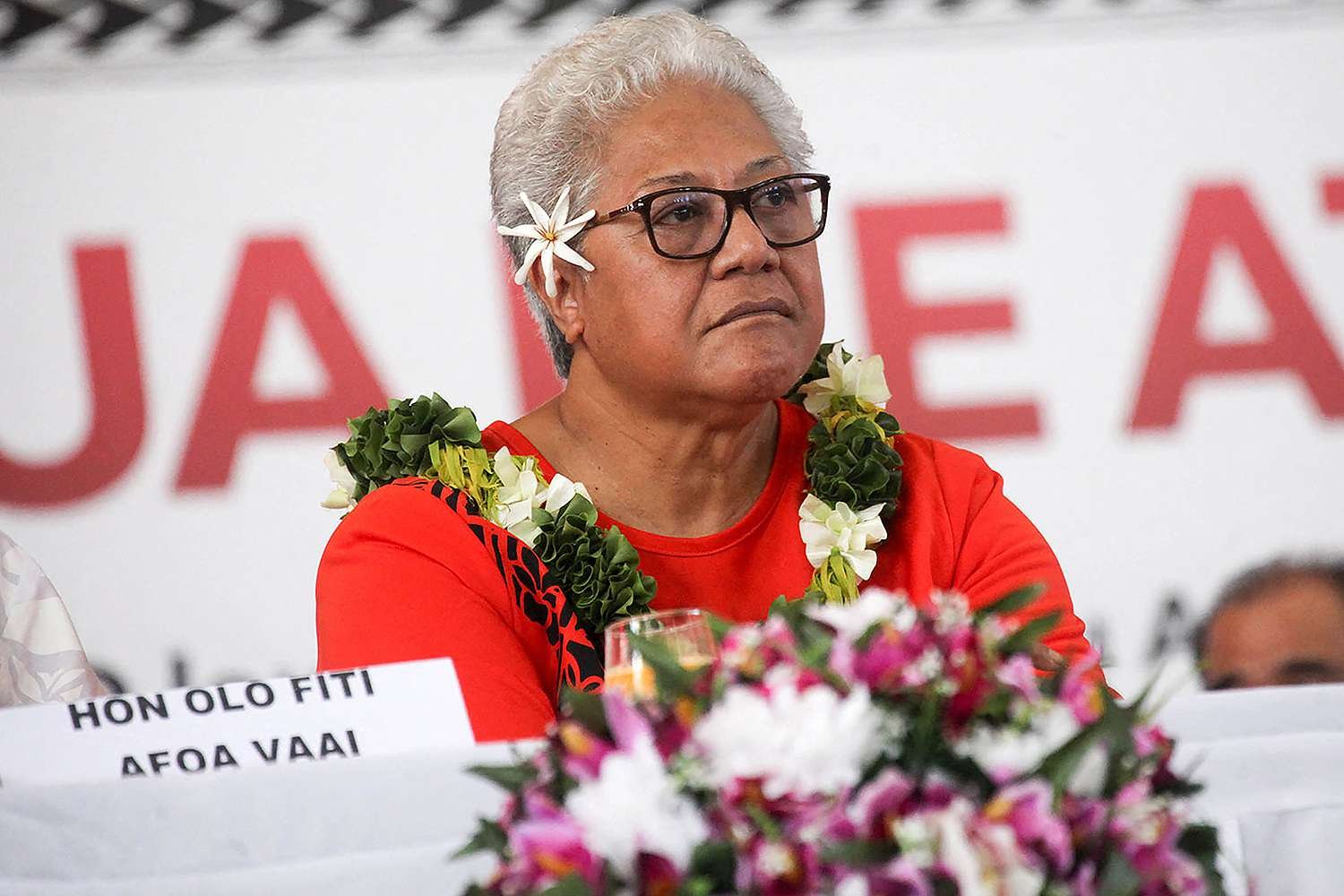
Samoa - 56.66
80
A democracy held together by the Supreme Court
This year, Samoa entered a constitutional crisis. After the incumbent Human Rights Protection Party (HRPP) and the opposition Samoa United in Faith (FAST), each won twenty-five seats in a then-fifty-seat parliament. Samoa has a law stating that a minimum of ten percent of parliament must be female, and seats can be added to meet this quota. A woman siding with the opposition FAST was selected from among the runner-ups and swung the balance in favor of FAST, allowing them to appoint Fiamē Naomi Mata’afa as prime minister. The outgoing prime minister, Susula Tiula’epa, refused to accept defeat and barricaded himself in the parliament building. Prime Minister Mata’afa swore herself in in front of the parliament building and the country would be in a political deadlock until the Court of Appeals declared her swearing-in constitutional and binding, thus recognizing Prime Minister Mata’afa. Had it not been for this democratic crisis, Samoa could have been one of the higher-scoring Pacific Islands. Samoa benefits from a relatively strong economy and does not face the same corruption issues as some of its neighbors.
Human Rights - 58
Samoa has fully abolished the death penalty. Prison conditions in Samoa are awful. The Tanumalala prison was horribly overcrowded and lacked adequate ventilation, lighting, sanitation, and medical facilities. Guards failed to stop inmate-inmate violence. Trials are often outsourced to village councils. The fairness of these village tribunals varied but they were upheld across the country regardless. Some villages conducted unfair trials based on patronage networks rather than facts and evidence. Despite an unenforced law banning homosexuality, Samoa also has unenforced discrimination protections. Abortion is legal to preserve the physical and mental health of a woman.
Democracy - 51
Samoa is a constitutional monarchy, limiting its score to 95. The ceremonial head of state is elected from among the four Paramount Chiefs for two-year terms. The prime minister is the majority leader of the parliament. Tribal village constituencies elect 47/49 Assemblymen while the other two are elected by “urban constituencies” including non-ethnic Samoans without tribal loyalties. Samoa is a highly ethnically homogenous country so the representation of non-ethnic Samoans was fairly proportional. Additional members can be added from among runner-ups to meet the quota of 10% women; there are currently 51 seats. Elections are generally free and fair. Only Samoans with Matai status can register as candidates in tribal village constituencies. Matai status is granted to tribal chiefs or family heads
Freedom - 61
Libel and defamation were re-criminalized in 2017 but are not enforced as criminal offenses but are regularly abused in civil suits. Politicians will regularly file costly libel and defamation suits in hopes of forcing a settlement. This practice leads to some self-censorship among Samoan journalists. The Samoan government has censored the distribution of certain media, most recently the Elton John biographical movie Rocketman. A 2017 constitutional amendment allowed Samoa’s status as a Christian country to be used in legal action. Previously, the country’s official religion was only mentioned in the preamble but is now mentioned in the body of the constitution. Samoa’s drug laws go widely unenforced. Prime Minister Tiula’epa described legalizing marijuana as akin to legalizing murder, despite marijuana laws seeing very little enforcement in Samoa. Samoa has largely unspecified but highly stringent gun laws, and guns are very difficult to obtain in Samoa.
Economy - 65
Health - 72
Samoa has a life expectancy of 73 years and an infant mortality rate of 1.2%. 47.3% of Samoans are obese and 2.8% are malnourished. While Samoa’s universal healthcare system provides free care through hospitals on every inhabited island in the country, it critically lacks professionals. 90% of Samoans have access to clean, running water. 28.9% of adult Samoans smoke regularly.
Corruption - 52
Trials are often outsourced to village tribunals, where rulings are sometimes based on personal loyalties or patronage networks. The Minister for Works, Transport, and Infrastructure owned several businesses in Samoa and New Zealand presenting conflicts of interest. The government had made contracts with these businesses and the minister was accused of corruption.
Competency - 24
The government failed to manage elections, resulting in a monthlong political deadlock. Additionally, the government is failing to control a raging obesity epidemic.
Future - 19
Samoa will be underwater by 2100, thus limiting their score to 20. A change of government represents a major opportunity for Samoa. The end of de facto one-party rule in Samoa will be good for the country’s political development, and the new government promises major reforms. The economy took a minor hit due to COVID and will likely recover quickly.
Actions Abroad - 87
Samoa does not maintain a military of any kind; it is in a military treaty with and under the protection of New Zealand. Samoa recognizes China, which provides significant foreign aid to Samoa.
1.1% of Samoans live below the international poverty line and 34% live below the national poverty line. 8.9% of Samoans are unemployed. Samoa has a low economic disparity. The minimum wage in Samoa is $0.76 per hour. Samoa has a mediocre universal healthcare system, with a network of public hospitals on every inhabited island providing free care to all Samoans. However, Samoa critically lacks medical professionals and hospitals are severely understaffed. Samoa’s GDP shrunk 2.7% in 2020 and grew 1.6% in 2019.
